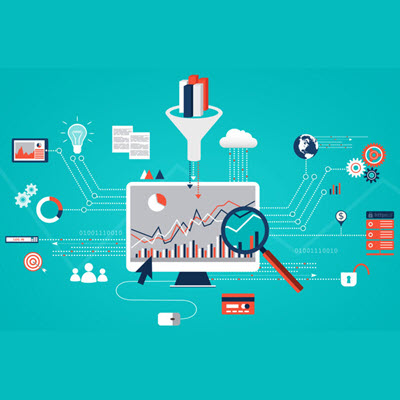Emerging careers where Maths skills are in high demand
Maths jobs for the future economy
Maths jobs are part of the growth in tech careers in cyber security, data and health.
According to the National Skills Commission, the number of Science, Technology, Engineering and Mathematics (STEM) jobs in Australia is projected to grow by 12.9% between 2021 and 2026. They have also proven resilient amid the pandemic downturn, with only 1.9% of STEM jobs being lost compared to 7% of other jobs.
That’s great news for anyone in STEM, but especially those with maths skills. Some of the biggest growth is happening in areas that need maths. Here’s a snapshot of three maths jobs that are on the rise right now.

Cyber criminals better beware
Speaking of growth, in 2022 the Australian Government committed $9.9 billion to strengthen Australia's cybersecurity capabilities. Jobs are booming too – around 134,690 people currently work in cyber, with more on the way (International Information System Security Certification Consortium, 2021). It’s a top career option for anyone who likes solving puzzles and cracking codes.
Professor Asha Rao is a mathematics researcher at RMIT University. Her research uses maths to identify money launderers and other cyber criminals.
‘I look at things from both angles. At one end, there’s encoding information and making sure it can be transmitted securely. At the other end is human behaviour,’ she says. ‘People are the weakest link. We click on links, we shouldn’t be clicking on, we share passwords, we download stuff. All of those things are a problem for cybersecurity.’
One of the mathematical tools Asha uses is graph mining – building visual databases representing the network connections between people in order to find important links. ‘In money laundering it’s hard to track the cash, because the chain of people involved is so long,’ she says. Graph mining can help fraud analysts identify the strongest connections between people in the chain in order to find the main players in the crime.


Data for days and days
Every day we as a society generate vast amounts of data. On Facebook alone, it’s four petabytes of status updates, photos and videos per day (Osman, 2021). But how big is a petabyte?
‘To visualise a petabyte, imagine a stack of hard drives taller than the Burj Khalifa, the tallest building on Earth,’ Asha says.
Big data is big business, and it’s become part of almost every industry. But big data is meaningless without people who know how to interpret it. That’s why data skills are in such high demand.
The number of job titles in the data realm can be mind boggling, but they can be divided into three main roles. Data analysts gather and interpret data and make it meaningful to others through visualisations, dashboards and reports. Data scientists build data sets, find new data sources and merge sources together seamlessly. Data engineers build pipelines for new sources of data and make sure it is structured in a way that makes it useful.
Data modelling can help us with all kinds of tasks, ranging from pricing and marketing products through to combatting COVID-19 and climate change. The best part is that data skills can be applied to anything, making for an incredibly versatile career.
Health by numbers
Two other emerging careers experiencing strong growth are bioinformatics and biostatistics.
Although they sound similar and the two fields do overlap, there are some key differences. Biostatisticians collect, analyse and interpret health-related data to better-inform public health initiatives. If you’ve ever heard a statistic about the effects of smoking or the health benefits of a particular drug, that’s the work of a biostatistician. Between 2015 and 2019 the number of biostatisticians nearly doubled, growing from 800 to 1400.
Bioinformatics, on the other hand, deals with ‘big biological data’, such as genomic sequencing. This involves using complex computational algorithms to analyse the data and identify potential genetic markers for disease. Advances in bioinformatics are the reason why genomic research has been able to accelerate so much in recent years.
These are just a sample of the emerging careers that are going to have a big impact on our economy in the coming years. By educating our kids about the huge opportunities in maths jobs, we can help them prepare for the future.